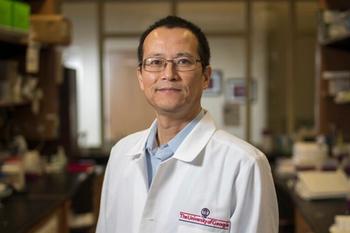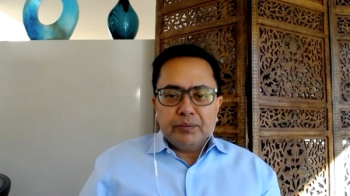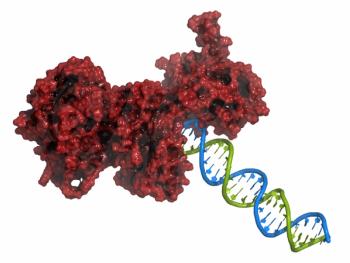
Neeraj Agarwal, MD, a clinician and researcher at the University of Utah Huntsman Cancer Institute, discusses investigational combinations with PARP inhibitors in prostate cancer treatment.

Neeraj Agarwal, MD, a clinician and researcher at the University of Utah Huntsman Cancer Institute, discusses investigational combinations with PARP inhibitors in prostate cancer treatment.

The genes are part of the family that cause cancer cells to grow.

Neeraj Agarwal, MD, of the University of Utah's Huntsman Cancer Institute, discusses ongoing trials of PARP inhibitors as first-line metastatic prostate cancer treatments.

Researchers from the University of California San Francisco published their results in the Journal of Urology.

Neeraj Agarwal, MD, of the University of Utah's Huntsman Cancer Institute, discusses challenges to progress in getting FDA approval for PARP inhibitors in prostate cancer.

Multiple studies have suggested African American men tend to have more aggressive forms of prostate cancer, but a new study suggests that may not translate to a higher risk of death.

The discovery of a genetic signature that correlates with metastasis in prostate cancer could make it much easier for physicians and patients to choose treatment strategies.

Authors in the Journal of Clinical Oncology discuss hypotheses on the differences in mutations and implications for treatment with PARP inhibitors.

Mounting evidence is supporting the use of poly ADP-ribose polymerase (PARP) inhibitors in prostate cancer, according to a new study.

Having biomarker-driven solutions in prostate cancer is important, because they have been lacking.

The therapy is for patients with deleterious or suspected deleterious germline somatic homologous recombination repair (HRR) gene–mutated cancer or for those whose cancer has progressed after prior treatment with enzalutamide or abiraterone.

Germline testing at diagnosis, along with tumor testing, have the potential to identify candidates for investigational poly (ADP-ribose) polymerase (PARP) inhibitors, and updated guidelines call for their expanded use.

The US Preventive Services Task Force (USPSTF) recommends that men aged 55 to 69 make their own decision on whether or not to be screened periodically for prostate cancer after they have had a conversation with their physician on potential benefits and harms.

259 Prospect Plains Rd, Bldg H
Cranbury, NJ 08512
© 2025 MJH Life Sciences®
All rights reserved.
